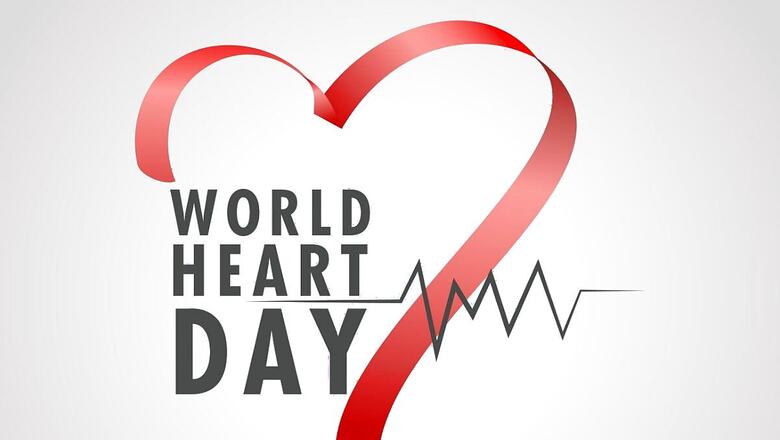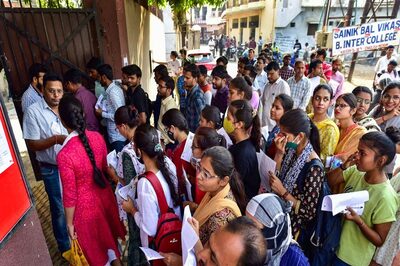
views
In today’s fast-paced world, the pursuit of financial stability often takes centre stage in our lives, overshadowing the beating lifeline of our well-being—our heart. Every year, cardiovascular conditions cause 18 million deaths worldwide, which accounts for 32% of all deaths globally, according to the World Health Organization.
With evolving lifestyles and inflated healthcare expenses, it is high time that we also recognise the need for financial wellbeing along with our physical well-being.
Let’s explore why diverting your financial attention towards a healthier heart is an investment you cannot afford to ignore.
The Link Between Financial Health and Heart Health
Stress is a known trigger for inflammation, which can lead to the narrowing of coronary arteries and increase the risk of heart-related issues and associated medical costs.
Compounding this challenge, the current era is marked by soaring healthcare expenses, making it increasingly complex to manage both financial stability and physical health simultaneously. This dilemma often traps individuals in a never-ending cycle: financial stress begets more expenses.
Therefore, it is essential to ensure sufficient financial safeguards for unexpected situations while also giving priority to a well-balanced and heart-healthy lifestyle. A strong financial foundation not only provides peace of mind but also enables us to focus on fostering our heart health.
Focus on the Mind and Heart Connection
A healthy heart serves as the cornerstone of overall well-being. Efficient circulation, supported by a healthy heart, supplies your body and brain with oxygen and nutrients essential for cognitive function, clarity of thought, and emotional balance.
Recognising the interconnectedness of mind and body, it is crucial to address both mental and physical aspects of well-being. Incorporating activities that promote mental health, such as regular meditation, can reduce stress-related medical expenses and enhance productivity, potentially increasing your income.
Invest in Healthy Habits for Healthy Heart
This day serves as a reminder that prevention is key. Rather than squandering resources on habits detrimental to both your heart and finances, consider investments that offer dual benefits.
Engaging in routine physical activities like cycling, running, or other cardiovascular exercises not only fortifies your heart but also improves overall physical and financial resilience. Consistent moderate- to vigorous-intensity physical activity boosts your heart’s strength, improves blood circulation, and can increase your productivity, potentially bolstering your income.
Also, with today’s lifestyle, it is imperative to shift focus from protection to prevention. This shift can be achieved by securing yourself against cardiovascular diseases with suitable term plans.
Prioritise Preventive Measures
“Prevention is better than cure”, the famous adage still stands true in today’s scenario. Regular check-ups with healthcare professionals can help detect potential heart problems early on, improving your health and saving you money.
Under Section 80D of the Income Tax Act, 1961, you can receive a tax deduction of up to Rs 5,000 per financial year for preventive health check-ups, subject to the overall Section 80D limit of Rs 25,000 for individuals and Rs 50,000 for senior citizens.
Prioritising a healthy diet and lifestyle, along with regular check-ups, can shield you from the financial burden of chronic heart diseases and their associated treatments.
Avoiding Wallet Weakening Indulgences
Recognise that certain habits not only harm cardiovascular health but also create a big hole in our pockets. Smokers, for instance, spend an average of Rs. 1,500 per month on cigarettes, a cost that is far from static.
Cigarette prices have consistently risen by an average of 20% each year in the past four years and are poised to continue climbing with increasing tobacco taxes. By redirecting funds away from these detrimental habits, you not only protect your heart but also fortify your financial health.
Money saved from quitting such habits could be channelled towards investments that could yield better results in the future.
On this World Heart Day, let us not only reflect on our personal heart health but also consider how our financial choices impact the most important organ of the human body. No matter the age, a healthier diet and active lifestyle can bring incredible health benefits to the body, including the heart. Therefore, leading to healthy financial wellbeing. So, let us pledge to take care of our hearts and finances amidst all the hustle and bustle of our daily lives.
-The author is CEO & MD, Aviva India. Views expressed are personal.




















Comments
0 comment